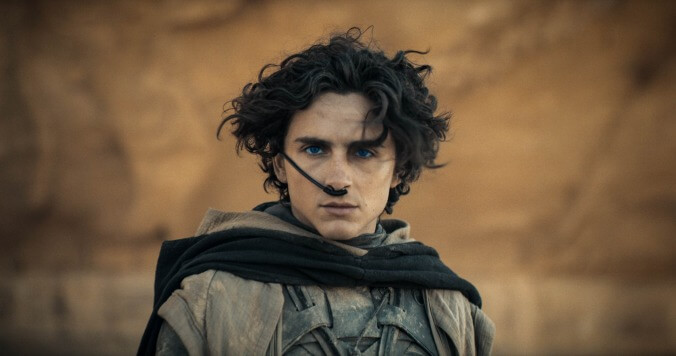Dune: Part Two review: Visually ravishing storytelling from Denis Villeneuve
Zendaya and Timothée Chalamet bring movie star magnetism to this continuation of the 2021 sci-fi blockbuster Dune

The biggest gotcha of 2021’s Dune—a movie full of spectacle and visual wonder—was that it was not a complete story. Most audience members were surprised by the ending, which set up a continuation of the story. And quite literally at that, with the final line being Zendaya’s Chani saying “This is a new beginning.” Now almost two and half years later the story finally gets its bigger and bolder sequel. Dune: Part Two picks up exactly where its predecessor left off, as in the next scene. From then on it manages to have the same rhythm, look and feel as the first one, for better or worse, as neither movie can stand alone. They should be taken together as one long five-hour adaptation of Frank Herbert’s novel.
Director Denis Villeneuve’s first major coup is in casting. Having Zendaya and Timothée Chalamet, two of the hottest young stars in the world right now, is not enough. He doubles the hotness—both in physical beauty and career trajectory—with Oscar nominees Austin Butler (Elvis) as Feyd Rautha, a new ruthless antagonist for Chalamet’s Paul Atreides, and Florence Pugh (Little Women) as Princess Irulan, a character that complicates the growing attraction between Atreides and Chani. In addition, most of the other actors from the first movie return, even if some cede the limelight to the newer characters.
The script by Villeneuve and Jon Spaihts, delves deeper into themes of religion and power. It’s a polemic about how religious power brokers manipulate people’s belief systems to gain power, something more than what audiences usually get in a Hollywood blockbuster. The story follows Atreides’ ascendance to lead the people of the dusty desert planet Arrakis against the forces of evil. It is straightforward enough and has all that is expected in such a movie: A requisite love interest, a violent nemesis, and the hero’s realization and embrace of their power. But it’s those aforementioned complicated themes that make it more than just a spectacle.
Visually, Dune: Part Two builds on what the first movie has offered. It looks similar, but everything is just a little bit more lavish and striking. The battles are bigger, the sandstorms more violent. When Chalamet, as Paul Atreides, finally gets to show off how he mastered riding the sand it makes for a truly exciting moment that will have many jump out of their seats. Unfortunately, when the story calls for thousands of people cheering, charging ahead, or surrounding the main character, they appear as visibly computer-generated effects. Hans Zimmer’s thunderous score is another impressive feat that adds dramatic heft to the proceedings. Yet the most memorable moments are the smaller hand-to-hand, sword-to-sword fights, and in particular a climactic one between Atreides and Feyd Rautha.
The screenplay tries to give Chani some complexity by turning her into the voice of the freedom fighters. However she still remains just the hero’s love interest, since the main narrative is primarily concerned with Atreides’ education as a leader, which is another rather simple story. That leaves the movie’s two stars stranded with nothing much to do except to pose and make intense eye contact at each other. At that, they are both fabulous and fulfill the promise of the first movie. Sometimes all a movie needs is just two good looking movie stars filling the frame with their presence.
That leaves Butler to have all the fun. His Feyd Rautha is teetering on cartoonish evil. A bloodthirsty villain who kills for sport. The character is a psychotic menace, but the performance brings lots of macabre wit. It’s so over the top that it adds a much-needed hint of camp that punctures the seriousness of the rest of the endeavor. Butler takes everything up a notch, making the film more memorable and definitely much more entertaining. Sadly Pugh fares worst out of this quartet since her part is small and the character ends up being just a forgettable plot convenience. Rebecca Ferguson adds a hint of malevolence to the gravitas she brought to the first movie, continuing her role as Atreides’ mother and champion. Javier Bardem personifies the movie’s skepticism about religious fervor with humor.
As blockbuster movies go, Dune: Part Two is a thrilling ride that totally earns its two-and-a-half-hour running time. The filmmakers add much-needed heft to their display of virtuoso filmmaking by adding serious real-life themes. However, there is a jarring disconnect between the words uttered by the film’s characters, many in Arabic or derivations of the Arabic language, and the actors uttering those words. With the exception of Souheila Yacoub and Zendaya, all of the main characters are played by actors of white European descent. No one is asking for literal casting in a fantasy movie, but when the story is clearly borrowing from myths and folklore from a particular part of the world, perhaps the casting could have been more diverse.